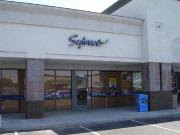It’s that time of year again, and many parents will soon find themselves in the same dilemma – do they buy their children the most popular toys or the toys that can help their children learn. Fortunately, the wide variety of toys available creates a number of options that enable parents to buy their children toys that are both fun and educational.
Children use toys to experiment and increase their knowledge base. In fact, playing is an effective way of introducing and mastering educational concepts. By introducing children to quality toys, learning is encouraged and expanded as they play.
“A well-chosen toy can greatly benefit your child. Good toys nurture your child’s ideas and imagination, while growing with your child’s changing interests,” explains Robert Satter, Executive Director of Sylvan Learning in Gilbert, AZ.
“Knowing how to buy the right toys for your children is a skill that can be learned. Look for toys that are challenging, but allow for success and also leave room for a variety of play. It’s easy to be a good judge of the play value of any toy, if you know the skills that each toy can teach,” says Satter.
Sylvan Learning, the leading provider of in-center and live, online tutoring at home to students of all ages and skill levels, offers parents the following suggestions to keep in mind when shopping for toys that are fun and educational.
1. Building Toys. To most parents, LEGO’s® Bionicle and Bob the Builder were the must-have toys of last year’s holiday season. Popular building toys like these can actually help children more quickly acquire the reasoning skills necessary for mathematics.
2. Computer Games. Last year, Microsoft’s Xbox, Sony’s Playstation 2 and Nintendo’s Wii were the hot games with older kids. While video games are not often thought of as educational, they do help build reasoning skills and logic as children navigate the different levels of each game.
3. Games. Games can be a fun way to encourage math discovery in children. In fact, many popular board games, such as Monopoly®, reinforce basic math skills. While children roll the dice and buy real estate, they also develop number sense and practice their basic math skills (addition, subtraction, multiplication and division). Even classic games like Connect Four® and Yahtzee® help with problem solving skills and computational speed and accuracy.
4. Projects. Project-based toys, such as model airplanes, cars, ships and rockets, are good for older children (ages 9-14). They help children build motor skills and teach them how to follow directions as well. Science kits, chemistry sets and ant farms also enhance reading comprehension (instructions) and critical thinking skills. While popular Harry Potter Snape’s Potion Lab looks like just another toy, in order to make the potion, children practice following directions, measuring, mixing and analyzing the results through taste and consistency.
5. Pretend Games. Young children love to pretend, especially with child-size versions of everyday adult objects. Pretending can be both fun and informative for your child. For example, the ever-popular Easy Bake Oven introduces children to basic food preparation skills, how to follow a recipe and may help ease them into helping with kitchen chores. A toy cash register helps children understand math and making change with money.
Tuesday, December 1, 2009
Please take a moment to view our videos below.
Thank you!



